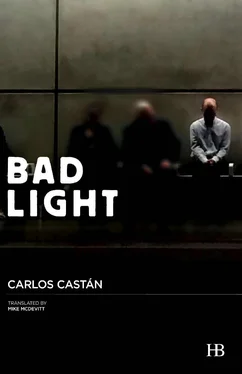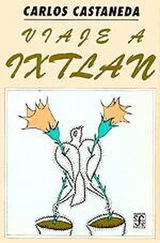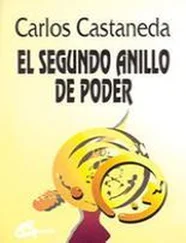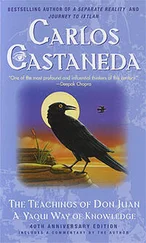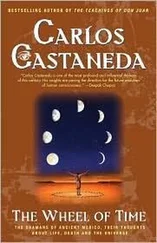Carlos Castán - Bad Light
Здесь есть возможность читать онлайн «Carlos Castán - Bad Light» весь текст электронной книги совершенно бесплатно (целиком полную версию без сокращений). В некоторых случаях можно слушать аудио, скачать через торрент в формате fb2 и присутствует краткое содержание. Год выпуска: 2016, Издательство: Hispabooks, Жанр: Современная проза, на английском языке. Описание произведения, (предисловие) а так же отзывы посетителей доступны на портале библиотеки ЛибКат.
- Название:Bad Light
- Автор:
- Издательство:Hispabooks
- Жанр:
- Год:2016
- ISBN:нет данных
- Рейтинг книги:5 / 5. Голосов: 1
-
Избранное:Добавить в избранное
- Отзывы:
-
Ваша оценка:
- 100
- 1
- 2
- 3
- 4
- 5
Bad Light: краткое содержание, описание и аннотация
Предлагаем к чтению аннотацию, описание, краткое содержание или предисловие (зависит от того, что написал сам автор книги «Bad Light»). Если вы не нашли необходимую информацию о книге — напишите в комментариях, мы постараемся отыскать её.
Carlos Castán
Bad Light
Bad Light — читать онлайн бесплатно полную книгу (весь текст) целиком
Ниже представлен текст книги, разбитый по страницам. Система сохранения места последней прочитанной страницы, позволяет с удобством читать онлайн бесплатно книгу «Bad Light», без необходимости каждый раз заново искать на чём Вы остановились. Поставьте закладку, и сможете в любой момент перейти на страницу, на которой закончили чтение.
Интервал:
Закладка:
3 (getting back home)
That was around the time of the spectacular accident in the Chilean mine. Thirty-three workers trapped almost half a mile beneath the earth. In real time, heart in mouth, the world followed the tragic events that, for seventy days, TV news bulletins the length and breadth of the planet led with. As did the press, and the radio. It was practically the only talking point. First, a tunnel was opened up through which the rescue teams could introduce the medicines and provisions from the outside world that were deemed most urgent. Direct, fluid communication was then established with those trapped below, their fears probed, their hopes of making it out alive broadcast, their attempts to say farewell in the darkest hours, their messages of love, their ham-handed poetry, filled with a candor that was chilling in its simplicity — pure naïf horror. People wondered what it might feel like to be trapped beneath a hillside, with tons of earth above and all that uncertainty as to whether one might ever again see the sunlight and all that it normally bathes. Little by little we learned of each individual case, the names and circumstances of the miners imprisoned down there below, hell almost within touching distance. The images on TV revealed the desperation of the relatives who followed operations as closely as they were allowed, night and day pressed up against the wire fence that marked the security perimeter. Both inside and outside the collapsed underground passageway, the slogan the whole world clung to was “get back home”. Like the wounded soldiers in Vietnam field hospitals who, in their fevered state, dreamt of streetlights on a Saturday night, the smell of hamburgers, and of music, and of sex. Getting back home.
I felt sure that those thirty-odd men must include at least one who, after the obligatory homecoming in front of the cameras and the official celebrations, having shaken off the hordes of dignitaries and special correspondents, the well-wishers, the throng of microphones thrust before him, would return home alone to find everything precisely as he had left it, a glass of water filled with specks of dust on the bedside table, in the exact same spot he had placed it, no doubt a dirty dish with the remains of a meal from over two months before on the kitchen table, now infested with mold and ants. Everything precisely as it had been when he left for work that morning, the blinds lowered to the same height, the half-open doors, the unmade bed, a towel on the bathroom floor. I couldn’t help but identify with that miner who, on his return, no sooner having set foot in the door, would be engulfed by the silence of his own home, a couple of dingy rooms in, say, the city of Copiapó. I wondered what would have gone through his mind those two long months buried down there below, while the others spoke of getting back home, of almost Christmassy scenes, and of the collective desire to make up for lost time if they ever made it out alive, of what truly matters: the fair, ponies, Sunday picnics in the country with the whole family, a hearty barbecue, everyone helping to wash the car in the stream; no more pisco ever again, no more anything ever again, just tucking the children in to sleep, taking them for a Sunday stroll to El Pretil or Schneider Park, thanking God for each new morning, each breath of fresh air, and the light, above all the light, enjoying whatever scarcity, whatever abundance. He would dream, perhaps, that some former girlfriend had heard news of his confinement, or some old friend from his school days he cannot now recall, but who knows, or some former drinking buddy, waiting for him up there on the surface of oxygen and stars to crack open a bottle in celebration. He would lie to his fellow inmates, telling them that someone was waiting for him, that whether he lived or died was not entirely inconsequential, that someone somewhere cared about the fate that awaited his bone-dry, malnourished hide all flecked with dirt and copper dust. I thought of him at night, of that Chilean brother. He appeared to me in dreams more than once, and we waxed shyly philosophical in short phrases and lengthy silences, much as certain wise men do when the day is done, by the fireside, and all the cattle have been rounded up in their pens. Life goes on as long as someone is waiting for you, the rest is just survival, he would say, though survival plain and simple is not without its charm and its thrills. Although I knew it was a copper rather than a coal mine, he would always appear with his face blackened, like a guerilla readying an ambush in the darkness of the jungle. I also always pictured him with filthy hands and black fingernails. I’m not sure he was right, my Chilean brother, about the waiting and the survival, but I grew somewhat fond of that coal-stained shadow who smoked while gazing at the floor and swigging bitter mate in my dreams.
Contrary to what tended to happen to me, the affliction I experienced at that time was a sorrow that emerged almost wordlessly, a naked ache that couldn’t find the right expression, something akin to an animal-like tearing, with all its bafflement and its momentous howl, like a dog waking up from the anesthesia under which its kidney has been clumsily extracted. In my mind, only objects, pure and simple, as if their sheen of connotation or memory had been wiped clean, the boredom of passersby on the other side of the window. It’s a liquid ache that drenches language, that deluges all thought like a dirty wave, dissolving concepts, soaking my knot of cables and rotting my connections. There can be no relief until words can once more breathe as before and again make their presence felt, until sounds and ink marks recover something of their meaning. It’s getting late. I don’t want to think about her. Somewhere, right now, her hands are moving, her facial muscles, her little feet. Somewhere real, I mean, out there, as well as in these ailing heartbeats where they’re never absent. As for the rest, a lobotomy as the supreme goal, the television, the cell phone switched off, and the doors locked in a rage, slammed shut, the bolt slid all the way in. Locking the door from the inside like never before in my life. If anything’s ailing me, it’s my brain. I beg the memories to leave me be, in vain I call on the howls from the basement to fall silent once and for all. To no avail. I imagine that it might be possible to caress a living brain, to massage it gently, aside, I mean, from the way music or whispers sometimes do, metaphorically speaking, and I picture a hand with painted nails lightly touching my brain as I sit here, eyes closed, motionless, like when a stranger shaves you with a straight razor. The hand anoints me with oils, aromas, and ointments, daubing everything with fresh pomades, running its fingertips over my exhausted, wounded brain, very slowly, its folds, its darkest nooks and crannies, one by one, the blood vessels, taking care so as not to burst them and leave everything more blood-soaked than it already is.
Days, too, of pills to summon sleep if nothing else will work when the time comes to assuage that stubborn sorrow that festers within. No oriental poetry, or vanilla-scented candles, or listening to the music from before this whole disaster was unleashed, when everything was as it should be and the anxiety amounted to nothing more than what was basically feigned vulnerability, a way of being in the world, chosen freely, that had to do with the aesthetics of pessimism, the echoes of a half-understood Schopenhauer resounding in the background, like a cello hidden in the shadows, and that gorgeous, dark universe, brimful of poisons and solitary passersby, Brassaï’s whores, the solitary drinkers of Picasso or Degas, fiery liquor, rain falling in back alleys, a blues sending a sudden shiver down the spine on the iciest of nights. Until, little by little, I dozed off, while I caressed my arms and shoulders, whispering Cavafy’s “Body, Remember” to myself, that ravishing prayer of world-weary lovers, of those who sleep alone, now too late, come a certain age, but always accompanied by the memory of a bygone age crammed full of battles of love on long-gone nights, on hundreds of fitted sheets of all sizes and colors that bore in the form of a silhouette the traces of our most devoted sweat, and in the graffiti-filled restrooms of seedy dives and in cars parked beneath the trees, and in haylofts broken into with a kick to the door, atop piles of hay, and once or twice under silvery canopies, the ice bucket within reach and candles lit until dawn. Puzzling remnants of a memory that sometimes returns, albeit unbidden, powerful and stubborn, in the darkness of poorly ventilated bedrooms that now smell only of a very different sort of sweat and of cough syrups and viruses and an evening gown stored inside a trunk.
Читать дальшеИнтервал:
Закладка:
Похожие книги на «Bad Light»
Представляем Вашему вниманию похожие книги на «Bad Light» списком для выбора. Мы отобрали схожую по названию и смыслу литературу в надежде предоставить читателям больше вариантов отыскать новые, интересные, ещё непрочитанные произведения.
Обсуждение, отзывы о книге «Bad Light» и просто собственные мнения читателей. Оставьте ваши комментарии, напишите, что Вы думаете о произведении, его смысле или главных героях. Укажите что конкретно понравилось, а что нет, и почему Вы так считаете.
